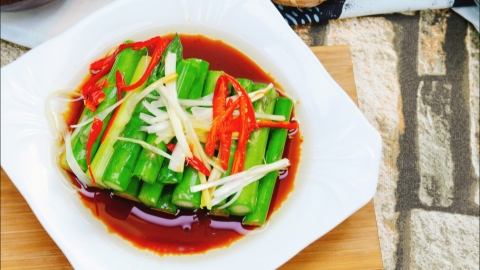Is asparagus considered a cold-natured food?
Generally speaking, asparagus is considered to have a cold nature. The detailed analysis is as follows:

From the perspective of traditional Chinese medicine (TCM) and dietary therapy, asparagus has a sweet taste and a slightly cold nature, entering the lung and stomach meridians. It functions to clear heat, promote urination, generate body fluids, and relieve dryness, making it suitable for symptoms such as internal heat, thirst, and impaired urination. Therefore, according to TCM theory, asparagus can be categorized as a cold-natured food. Consuming asparagus in moderation is safe and even beneficial for health. It contains abundant vitamins, minerals, dietary fiber, and other nutrients that help promote metabolism and enhance immunity.
Due to its cold nature, individuals with spleen-stomach deficiency and cold should avoid excessive consumption of asparagus, as it may worsen gastrointestinal cold symptoms, leading to abdominal pain and diarrhea. People with a cold body constitution or symptoms such as cold hands and feet and sensitivity to cold should consider combining asparagus with warming ingredients like ginger slices and Sichuan pepper to balance its effects. Recommended cooking methods include stir-frying, blanching followed by cold mixing, or making soup; raw consumption should be avoided. Additionally, women during menstruation who have a cold constitution or suffer from dysmenorrhea should moderate their intake of asparagus to prevent its cold nature from affecting blood and qi circulation.





